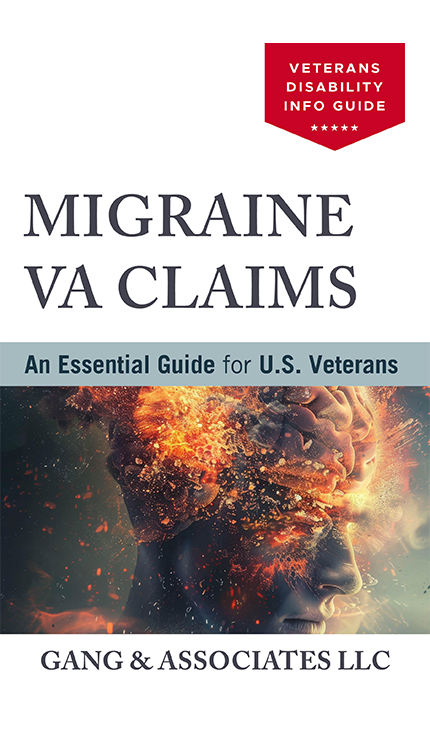Guides
VA Disability Ratings for Migraines
An Essential Guide for U.S. Veterans
Studies indicate that veterans show a higher prevalence of migraines than civilians. An estimated 36% of veterans serving in Operation Enduring Freedom/Operation Iraqi Freedom (OEF/OIF) experience migraines compared to just 12-15% of the general population. While the exact reason for the higher rate of migraines in veterans is unknown, analysis suggests it may be due to various chemical toxin exposures and frequent exposure to explosions, gunfire, concussion, and traumatic brain injury (TBI).
Migraines are associated with numerous other health conditions, including psychiatric disorders, suicidal ideation, substance abuse, fibromyalgia, chronic fatigue, sleep disorders, irritable bowel syndrome [IBS], stroke, cardiovascular disease, obesity, and diabetes. In addition, certain health problems can interact with migraines and worsen symptoms, such as TBI, depression, and posttraumatic stress disorder (PTSD).
However, securing VA benefits for migraine treatment can be difficult. The VA continues to deny claims, even when they are legitimate. Our free eBook, VA Disability Ratings for Migraines: An Essential Guide for U.S. Veterans, offers detailed instruction on preparing migraine disability claims and appeals processes for veterans with denied migraine VA ratings. It provides indispensable support towards securing rightful migraine VA benefits.

What’s in the eBook?
- Migraine Phases and Types
- Effective Treatments for Migraines
- VA Disability Ratings for Migraines
- How To Win VA Benefits for Migraines
- Filing A VA Claim for Migraines
- Appealing A Denied Claim
The VA will want to see a medical expert’s opinion on the link between migraines and military service. The medical nexus letter is a report from a medical expert that provides an analysis supported by scientific literature regarding the causation of migraines.
A VA Compensation and Pension (C&P) examination report serves as a form of nexus letter, presenting information related to the potential causes of migraines experienced by veterans. However, it is imperative for veterans not to depend solely on VA physicians for nexus letters that substantiate their claims for benefits. Instead, seeking an expert medical professional who can provide a comprehensive, objective assessment outlining the connection between the veteran’s service and their migraines is advisable.
The Definitive Guide to Securing a Migraine VA Rating
-
1
Obtaining a VA-Approved Diagnosis for Migraines
-
2
Establishing Service Connection for Migraine VA Ratings
-
3
Increasing Your VA Migraine Rating
-
4
Appealing Denied VA Claims Related to Migraines
